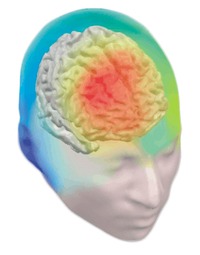Posts Tagged ‘brain training programs’
Study: Why Super Mario 3D World may train your brain better than Angry Birds
Playing 3‑D video games can boost memory formation, UCI study finds (UCI News): “…Craig Stark and Dane Clemenson of UCI’s Center for the Neurobiology of Learning & Memory recruited non-gamer college students to play either a video game with a passive, two-dimensional environment (“Angry Birds”) or one with an intricate, 3‑D setting (“Super Mario 3D World”)…
Read MoreBrain health research study by AARP: Consumers pursue brain training to support a more enjoyable, self-managed life
. AARP just released a very interesting brain health research study based on 1,200 online interviews conducted in August 2014. Key findings include: Maintaining a healthy lifestyle is important to all consumers (99% find it at least somewhat important). Brain health is the second most important component in maintaining a healthy lifestyle, after heart health (37%…
Read MoreCognitive maintenance 2.0: From crossword puzzles to targeted mental stimulation
The Silver Economy: Brain training fired up by hard evidence (Financial Times): “Not so long ago, people kept ageing brains active through reading and writing, talking with friends and family, and perhaps playing cards or doing puzzles. Now a rapidly growing number are taking a high-tech approach to cognitive maintenance, through computer programs designed to stimulate…
Read MoreMaximizing brain fitness and mental well-being improves both public health and individual quality of life
We’re having a good conversation among SharpBrains Summit participants, prompted by the blog post Lifelong brain wellness and performance–not medical disease–drives growing demand for digital brain health solutions. In what is a beautiful example of the need to see both the forest and the trees
Read MoreCan Brain Training and Biofeedback Help Prevent Depression
In two innovative pilot studies, Ian Gotlib and his colleagues at Stanford University, California, showed that brain training can be used to help eliminate depression, even before it starts. They studied young girls (10 to 14 year old) whose mothers were depressed and who thus were at higher risk of developing depression themselves later-on. The girls…
Read More




